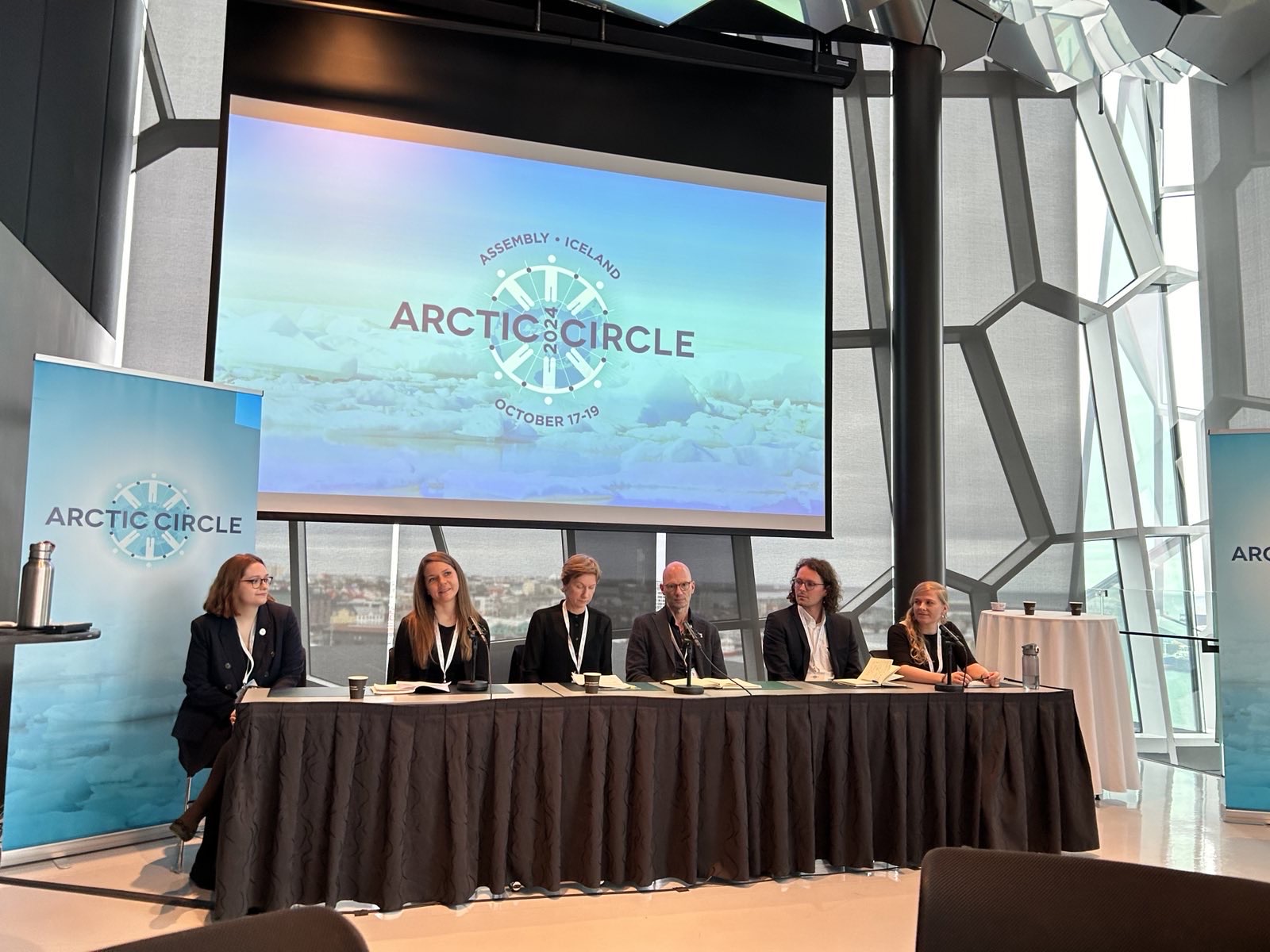Science Diplomacy Through Conferencing At The Arctic Circle Assembly
by Charlotte Gehrke | Published: 28-Oct-24 | Last updated: 28-Oct-24 | Tags : Arctic diplomacy discussion event Iceland roundtable science | category: NEWS
 Participants of the roundtable discussion at the 2024 Arctic Circle Assembly. Photo: Øystein Solvang
Participants of the roundtable discussion at the 2024 Arctic Circle Assembly. Photo: Øystein Solvang
Reykjavik, Iceland.
On Thursday, October 18th, the annual Arctic Circle Assembly kicked off its three-day conference, bringing together political decision-makers, researchers, and industry representatives to discuss the most pressing issues facing the Arctic. The topic of science diplomacy was heavily featured in the conference program, leading my colleague Beate Steinveg and I to organise a roundtable asking if and how science diplomacy could be practised at Arctic conferences, such as the Arctic Circle Assembly. In doing so, Beate and I sought to combine her research on Arctic conferencing with my work on Arctic science diplomacy.
To discuss the topic of Science Diplomacy Through Conferencing, Beate and I brought together an international and interdisciplinary group of experts, including the project leader of Arctic PASSION, oceanographer Michael Karcher (Alfred Wegener Insitute for Marine and Polar Research), professor of geography Merje Kuus (University of British Columbia), policy and research analyst Evgeniia (Jen) Sidorova (Pauktuutit Inuit Women of Canada), NGO platform manager Frederik Gerke (Arctic Basecamp), and PhD candidate Anne Schäfer (Nord University). My co-organiser, associate professor Beate Steinveg (Nord University), also joined the expert round, and I moderated the roundtable.
Each panellist brought a unique perspective to the panel, touching on a variety of subjects, from the systems of knowledge spotlighted in science diplomacy activities at conferences to the impacts of ongoing geopolitical developments, most notably the Russian invasion of Ukraine. Audience members also showed concern regarding these subjects, asking how accessibility and equitable participation at conferences could be achieved to ensure that Indigenous and minority voices were equally represented at these sites of science diplomacy. Other audience members noted their worries concerning the lack of Russian participation at the conference, with Beate highlighting the use of ‘science diplomacy’ as a proxy to discuss the geopolitical conflict with Russia at the conference.
Playing into the meta-aspect of a conference panel about conferences, another audience member voiced concerns about policymakers attending academic conferences, worrying about the potential chilling effect their presence may have on the subject vernacular and types of arguments research could employ for fear of being misunderstood. The expert panel uniformly welcomed policymakers’ presence, highlighting the need for political decision-makers, researchers, and others alike to improve their abilities to communicate beyond their respective professional and academic silos.
Ultimately, audience members and panellists rallied around Michael Karcher’s argument that “the real thing happens in the breaks,” referring to conversations during coffee and lunch breaks, with Merje Kuus emphasising the need for in-person interaction. With a touch of irony, many attendees later confirmed that they primarily attended the Arctic Circle Assembly to network, rarely prioritising the scheduled programming of plenary sessions, panels, and roundtables.
